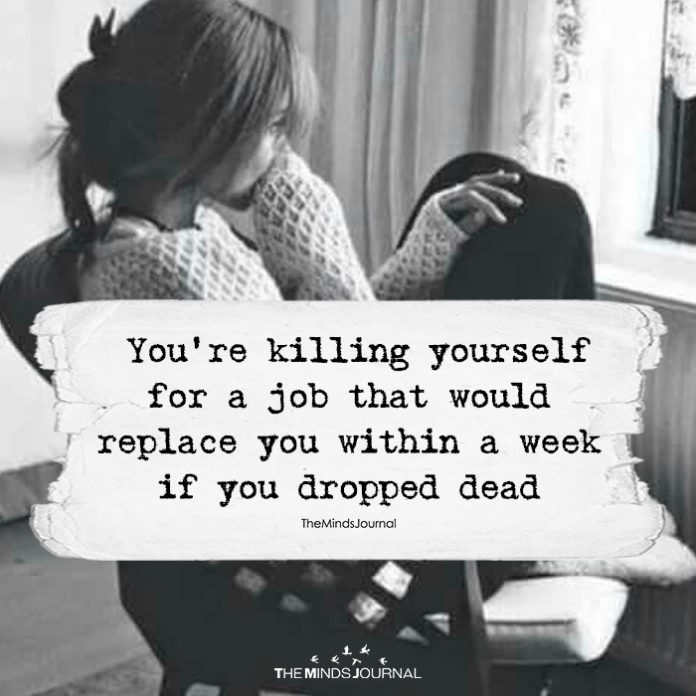Do you want to be happier at work? Who wouldn’t, right? All of us want a career that is fulfilling and exciting.
As we spend most of our day at work, it becomes a necessity that we feel happy working, not just for better productivity, but for our overall mental health.
Why being happier at work is important
Most jobs have slumps. Most jobs have some pros and cons that offer us the right opportunities and challenges to enhance our professional skills and forward our career. However, despite how great your job may be, it is likely that you will feel ‘hump day’ blues at some level. Perhaps, this is why more than 50% of U.S. workers feel they are unhappy and unsatisfied with their jobs.

Did you know you will spend 90,000 hours at work during your lifetime? For many of us, almost a third of the day is spent working. So it only makes sense to pursue a job that makes us feel happier at work. We want to make sure that our time at the office counts and we feel fulfilled, satisfied and pleased.
Is your job affecting your mood? Read Are You Feeling Depressed At Work?
Happiness matters
“How we spend our days is, of course, how we spend our lives.” – Annie Dillard
Unhappiness and dissatisfaction at work can seriously affect your focus, motivation, productivity, and lead to communication challenges. On a personal level, it may significantly increase your anxiety and stress levels and result in various physical and mental health issues.
Studies have found that the unhappier you are at work, the more you will be unproductive and slack off. It can also affect the mood and productivity of your co-workers and impact your emotional health significantly. Research also indicates that being happy with your work makes you less likely to quit your job, communicate better with others and be better able to satisfy customers & clients.

An extensive research on productivity & happiness, by the Saïd Business School, University of Oxford, found that employees were 13% more productive when they reported to be happy. The study gathered data from 1,800 call-center employees over a period of 6 months. It revealed that when the workers reported as being happier, their productivity, attendance and customer satisfaction improved.
Do you feel burnt out at work? Read 5 Signs You Are Experiencing Workplace Burnout
How to be happier at work
Happier workers make better leaders and workers. They are more pleasing to work with and they add to the overall work environment and culture. But how can you be happy at work? As you struggle with your mental health while attaching another spreadsheet to your email, how can you be personally happy & professionally productive?
If you like what you do and your paycheck does justice to the effort you put in, then there are some science-backed ways that can help you find more happiness at the workplace.
1. Feel good in the morning
Starting the day with positivity can actually help you feel a lot happier at work. The fact is, the way we feel in the morning affects our mood, thoughts and emotions for the rest of the day. A study by Nancy Rothbard Ph.D. of University of Pennsylvania, evaluated the moods, attitudes and performances of customer service executives. The research found that workers who had a positive attitude and were generally in a good mood in the morning reported to be more productive throughout the day. Moreover, they also had better interactions with clients.
So if you wish to be happier with your work, then make an effort to do what you enjoy in the morning as it will make you feel better on a personal level. It may be going to the gym or a walk, gardening or something as simple as enjoying your cuppa joe.
2. Improve relationship with co-workers
According to a 2016 survey on job satisfaction & employee engagement by the annual Society for Human Resource Management, it was found that your relationship with your colleagues was the most important factor that led to your professional happiness.
Moreover, helping your co-workers can also significantly contribute to making you feel happier at work. A study by La Follette School of Public Affairs found that employees in their 30s reported feeling happier by helping others at work, when asked about it 30 years later. Another study on employee happiness found that employees who are generally happy at the workplace tend to help their co-workers 33% more than employees who feel unhappy.
However, you don’t need to go out of your way to help a fellow employee. Simply ask your favorite teammate if they need a hand on their project or grab a cup of coffee from them. Although, it might be a bit challenging on a daily basis, doing this intentionally can have an excellent positive impact on your mindset.
Do you have a toxic colleague? Read Toxic Coworkers: Dealing With 7 Most Dangerous Work Personalities
3. Pause and breathe
When you feel things are getting too hard to handle at work, simply take a deep breath and pause for a while. Be mindful about your environment and observe what thoughts and emotions you’re feeling in the present moment. According to neuroscientist Dr. Emiliana Simon-Thomas, “Taking a deep breath as often as you can at work, or having some kind of extra awareness of what’s going on in your own psychological milieu, is so important.”

Simon-Thomas, science director of the UC Berkeley Greater Good Science Center, believes that mindful practices can prove to be highly beneficial. Habits like deep breathing during breaks or before big meetings can calm your mind and prevent toxic thoughts and rumination. This can also help you reduce your stress and anxiety levels.
“Focus on your breath when you’re in a moment of reactivity, when you’re tempted to perhaps yell at someone about something they did that irritates you. Notice the urge, get curious about it, feel the joy of letting go and repeat,” she added.
So the next time you feel like losing your cool and yelling at a co-worker, stop for a moment, take a deep breath and observe your thoughts and emotions before reacting to the heat of the moment.
4. Learn new skills
According to a 2015 Gallup poll, around 51% of workers in the U.S. reported they are “not engaged” in their jobs. The survey also found that 32% of U.S. adult workers reported being “actively engaged”, while 17% reported they are “actively disengaged” in their jobs.
If you feel you’re not actively engaged with your work, then you’re probably bored with what you do on a daily basis. Doing the same thing repeatedly can make us feel bored and surely sap our energy and happiness. If you feel your happiness at work is affected due to boredom, then the best thing you can do is learn a new skill. Depending on what you do for a living, you can always learn new skills to improve your efficiency and give your resume a much-needed boost. In fact, a research paper published, by authors David Cutler and Adriana Lleras-Muney, in the National Bureau of Economic Research, found that education and learning can significantly affect our well being and morality.
So make sure you learn new skills and challenge yourself to feel higher levels of job satisfaction and happier at work. You may choose to enrol in an online course or ask your supervisor about employee learning & development programs in your organization. This will motivate you to work harder and have a positive effect on your mindset and attitude.
Want to get better at your job? Read Six Ways To Improve Productivity At Work
5. Get out of the office
Do you take lunch alone at work? If you want to be happier at the workplace, then it’s time to head out of the office and catch up with some friends while you have lunch outside. Our minds need to recharge itself as much as our bodies need food to fuel itself. A change of setting, environment and people can prove highly helpful.
According to a 2013 study, eating alone at your desk can lead to feelings of unhappiness while eating out with friends can be highly relaxing. The research article by Prof. Werner Sommer, Department of Psychology, Humboldt-University at Berlin found that “a restaurant meal with a social component may be more relaxing than a meal eaten alone in a plain setting and may reduce cognitive control.”
6. Practice gratitude
Ending your day with the simple practice of being grateful can work wonders for your mood and psyche. Due to negativity bias, we are much more affected by negative outcomes than positive outcomes of the same intensity. Studies have found that negative setbacks at work were 3 times more powerful than the impact of positive progress. This makes it harder for us to experience happiness at work.

However, we can counter this negativity bias and program our minds to look at the positive more often simply by practicing gratitude on a daily basis. All you need to do is remember, appreciate and write down about the good things in your day. Evidence shows that being grateful can make us more optimistic and experience joy more often in life.
Can being grateful transform your life? Read 5 Ways Gratitude Can Change Your Life
So make sure to adopt a gratitude ritual and practice it at the end of your work day regularly. You can also choose to share your positive thoughts and emotions from the day with a loved one. Studies have found that sharing positive experiences “using a diary method” or with another person makes us feel better and improves how we feel about our life.
Choose to be happier at work
We all want a job that makes us feel excited about waking up and rushing to work. But that seldom happens. For most of us, the reality is we drag ourselves to work in the morning and come back home in the evening completely drained of physical, mental and emotional energy.
However, if we wish to be happier at work, then we will need to be intentional about it. We need to take deliberate efforts and the methods mentioned above can enable us to do just that. As you can see all the 6 methods I shared above have been proven to be effective by science and can work wonders for you, if you are aware and just put in some effort.

Happiness is not something that is too hard to experience. Happiness is our default setting, regardless of where you spend your day. We simply need to be conscious about choosing happiness.
Want more? Read 8 Signs You Should Quit Your Job
Here’s an interesting video that you may find helpful:










Leave a Reply